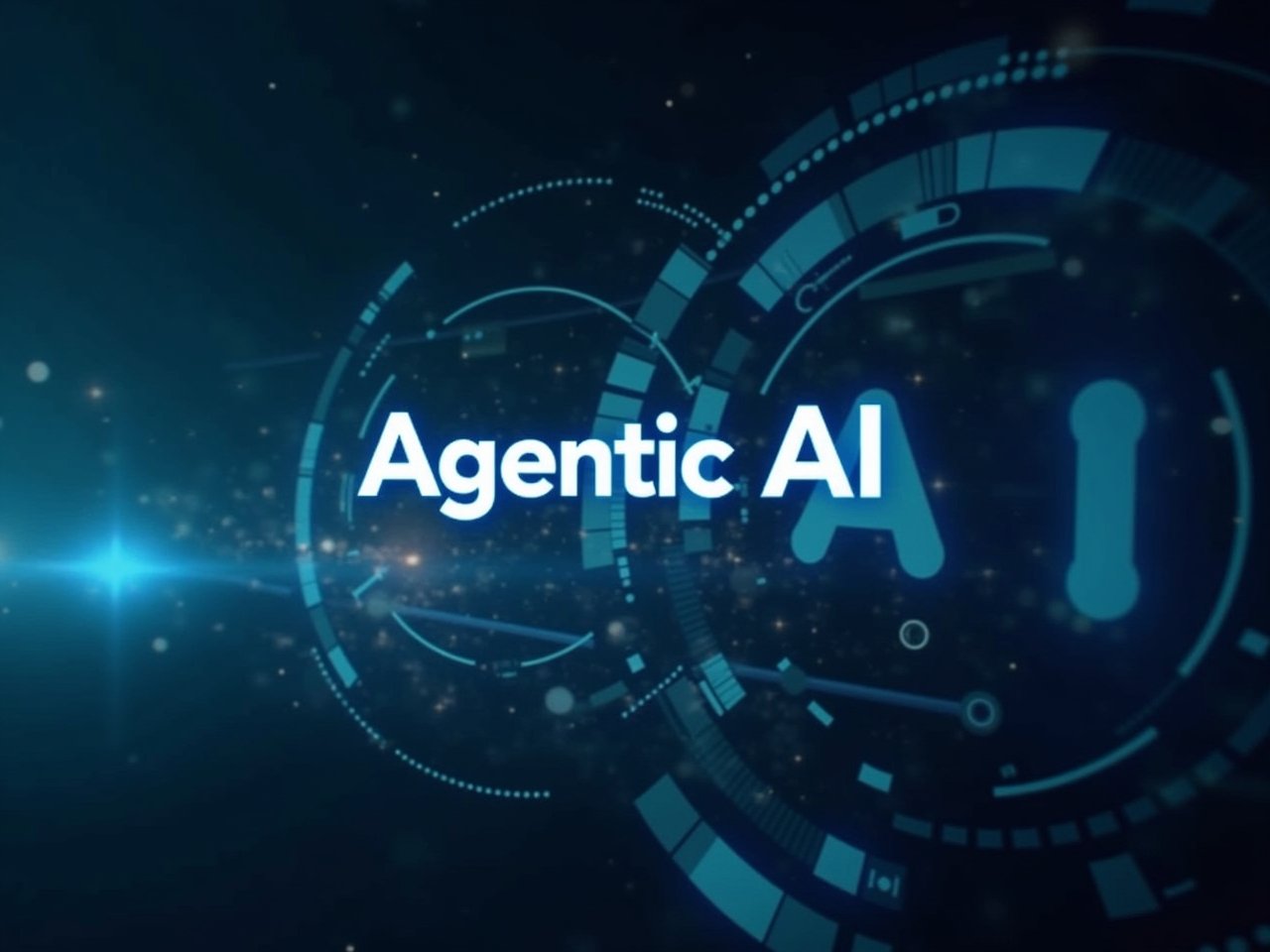The landscape of AI is undergoing yet another significant transformation. The last border of Agentic AI is ready to reconsider what we understand. Since we look at the automation in 2025, an understanding of Agentic artificial intelligence is important for competitive and effective companies. Curious about What Is Agentic AI and How It Will Transform Automation in 2025? This article covers its capabilities, use cases, and impact on the future of autonomous workflows and business efficiency.
What Exactly is Agentic AI?
At its Core, Agentic AI is an AI system for functioning as an autonomous agent. Unlike the existing automation that performs a series of tasks in advance based on obvious guidelines or subsequent creation of AIs, the Agentic AI works with higher independence. It has the ability to recognize the environment, understand high-level goals, plan a multi-level strategy, and improve future results without permanent people.
Think of the existing automation system as a factory assembly line and perform the same task repeatedly. Generative AI is similar to talented artists and creates new works based on these topics. However, the Agentic AI is similar to the project manager in solving the problem. Given the goal, you can break the problem, distribute resources (including other artificial intelligence tools such as generative models), and adjust the real-time feedback approach to achieve the final result.
Key Features and Capabilities of Agentic AI
The strength of the agent system is associated with the combination of complex functions.
- Autonomy: The Defining feature is the ability to work independently, make decisions, and take action without any human intervention.
- Goal-Oriented Behavior: Agentic AI is determined by the goal. Given the difficult goals, he can establish a plan, continue to work on that achievement, and adjust the strategy as needed.
- Adaptability: This agent can feel the change in the operating environment and dynamically change its planning or behavior depending on new information or unexpected situations.
- Continuous Learning: The Agentic systems can use repeated feedback loops to improve their understanding over time and improve their understanding and improve productivity over time.
- Decision-Making: They have the ability to make reasonable decisions based on analyzed data and trained understanding. Often, in a situation that is too complex or rapidly developing for human intervention.
With these features, you can create Autonomous AI agents, and you can do more than simple execution, including judgment, planning, and adaptation.
How Agentic AI Will Revolutionize Automation by 2025
The emergence of Agentic AI is expected to change the future of automation in several sectors by 2025. The ability to cope with complexity and autonomously manage releases new levels of efficiency and function.
- Manufacturing: AI agent can be dynamically adjusted by dynamically adjusting the work process depending on the real time or state of the total production line, robot system adjustment, prediction and planning service, and supply chain.
- Logistics and Management of the Supply Chain: In complex global supply chains, the agency system controls the reserves, and the external factors (for example, the weather or addiction of the port), the autonomous thoughts and negotiations with the airline guarantee the economic delivery and create a very effective logistics network. To understand the increase in AI in the stability of the supply chain, see the recent industry expert analysis (Note: This is a simulated external connection).
- Customer Support Service: Agentic customer service agents can provide complex requests, access to information, various database access, problem diagnosis, permits, and transmission requests, so that they can provide more than the current function of CHATBOT and provide 24-hour support.
- Health Administration: Agentic AI can automate complex management work, such as insurance processing, patient planning in other departments and resources, preliminary data analysis processing for medical research, and the launch of health workers.
This controlled AI work process is a fundamental change from simple automation of individual tasks to automation of the entire process and function.
Benefits and Potential Challenges of Adopting Agentic AI
Agentic AI Automation in 2025 offers compelling benefits:
- Increased Efficiency: Intellectual automation is performed by agents and can be done in order to quickly and more efficiently than the process under human control.
- Operating Cost Reduction: Automation of complex work processes can save significant costs for labor and resource distribution.
- Increased Accuracy: AI agent minimizes the potential of human errors in repeated or very complex tasks.
- Advanced Response: Systems can respond to change and make decisions in real time, allowing you to increase the dexterity of your business.
Nevertheless, there is an important issue with the advantages of Agentic AI. There is an important problem. The need for transparency in consideration of ethical considerations related to the adoption of autonomous decisions, how to draw conclusions, data personal information issues, the need for a wide range of approaches to data, and the potential of tasks that require adaptation of labor and high-end training.
Preparing for an Agentic AI Future
AI Companies must begin to study the potential of agentic AI. This includes the identification of the process maturity by the AI Work Processes, and ensures the development of strategic development to integrate the autonomous agent of autonomous agents of AI. Promotion of AI literacy and the ethical placement culture of AI among the people is also an important stage for exploring future automation.
Call-to-Action
Agentic AI is composed of autonomy controlled by the goal of problem solving beyond the simple performance of automation in 2025. These AI Agent provides enormous potential to increase efficiency and innovation in various industries. You must know this transformed event in the Agentic artificial intelligence.







